She Believed She Could: Laura Osnes & Benjamin Rauhala on the Fairytale of The Broadway Princess Party
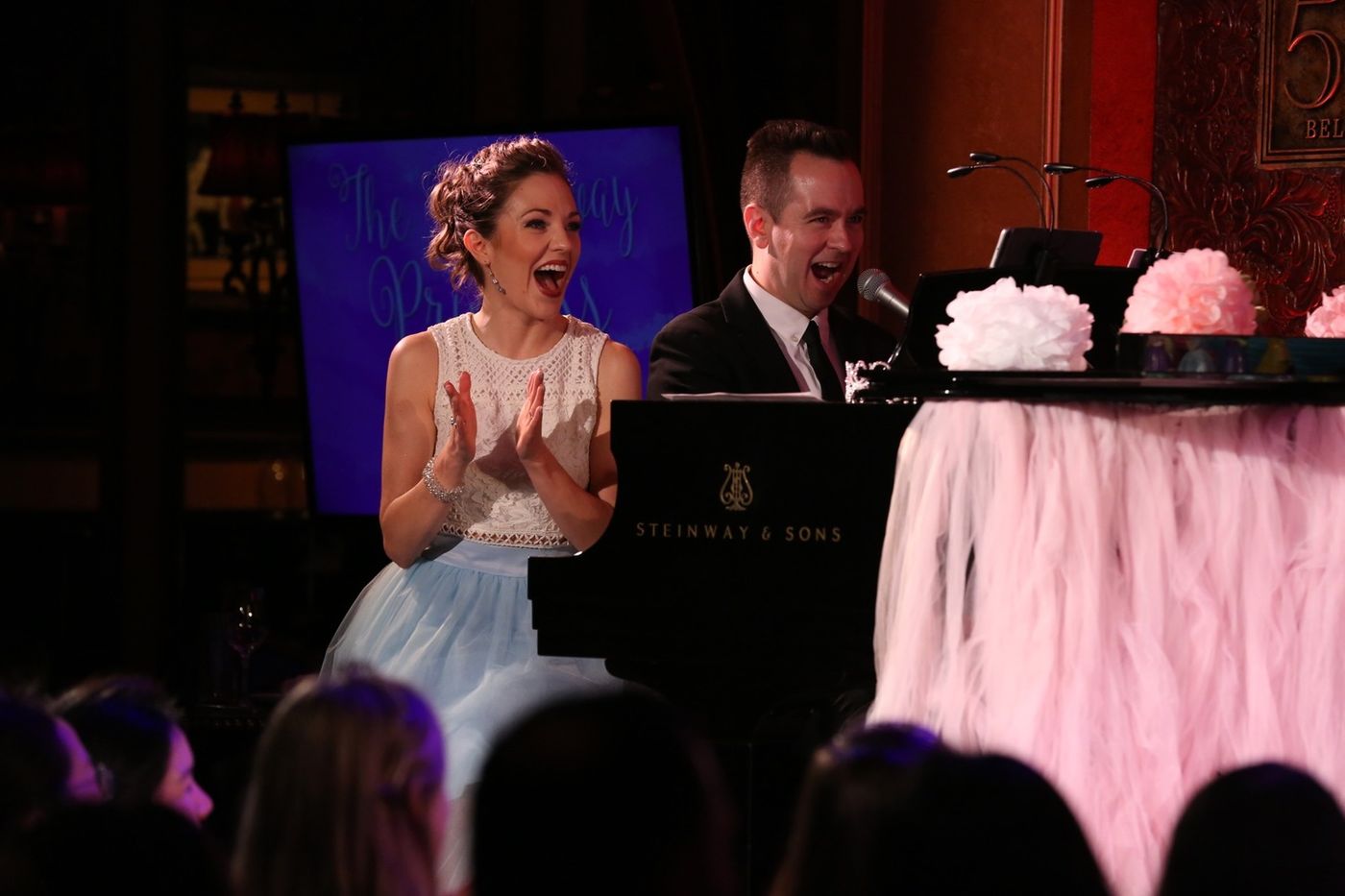
What place does a fairytale have in the modern world?
Unlike Cinderella's slipper, there's no one perfect fit of an answer, but two of Broadway's favorites have been exploring this question through a popular concert/cabaret series. The Broadway Princess Party, the brainchild of two-time Tony-nominated actress Laura Osnes and music director Benjamin Rauhala, combines a tongue-in-cheek sensibility with a warm affection for musical princess characters and their stories. With the concerts, Osnes and Rauhala have created a space that celebrates music, joy, and a healthy dose of girl power.
The "princess" has definitely gone through some growing pains in the last half-century. In eras where rigid gender roles reigned supreme, pop culture princesses were floaty heroines who prevailed through passive traits like goodness and patience and who relied on princes. By the end of the 20th century, audiences grew frustrated with these characters as embodying outdated notions of what it means to be a woman, preferring more active characters like Mulan or Merida. Snow White and Sleeping Beauty became passé at best.
And yet - how many women feel a rush of affection for "Once Upon A Dream" or "A Dream Is A Wish Your Heart Makes"? Most do, I'd wager. Therein lies the paradox for many modern women: how do we satisfy that affection while moving forward in a modern world that encourages women to be more than a damsel in a tower?
"These are timeless tales that still feel applicable... and now we're able to share our stories of being "Broadway princesses" and maybe we're the next generation of who these princesses can be, instead of just equating them to [the animated originals]... we're making it relevant," says Osnes, a Tony nominee for Rodgers + Hammerstein's Cinderella and one of Broadway's most visible "princesses."
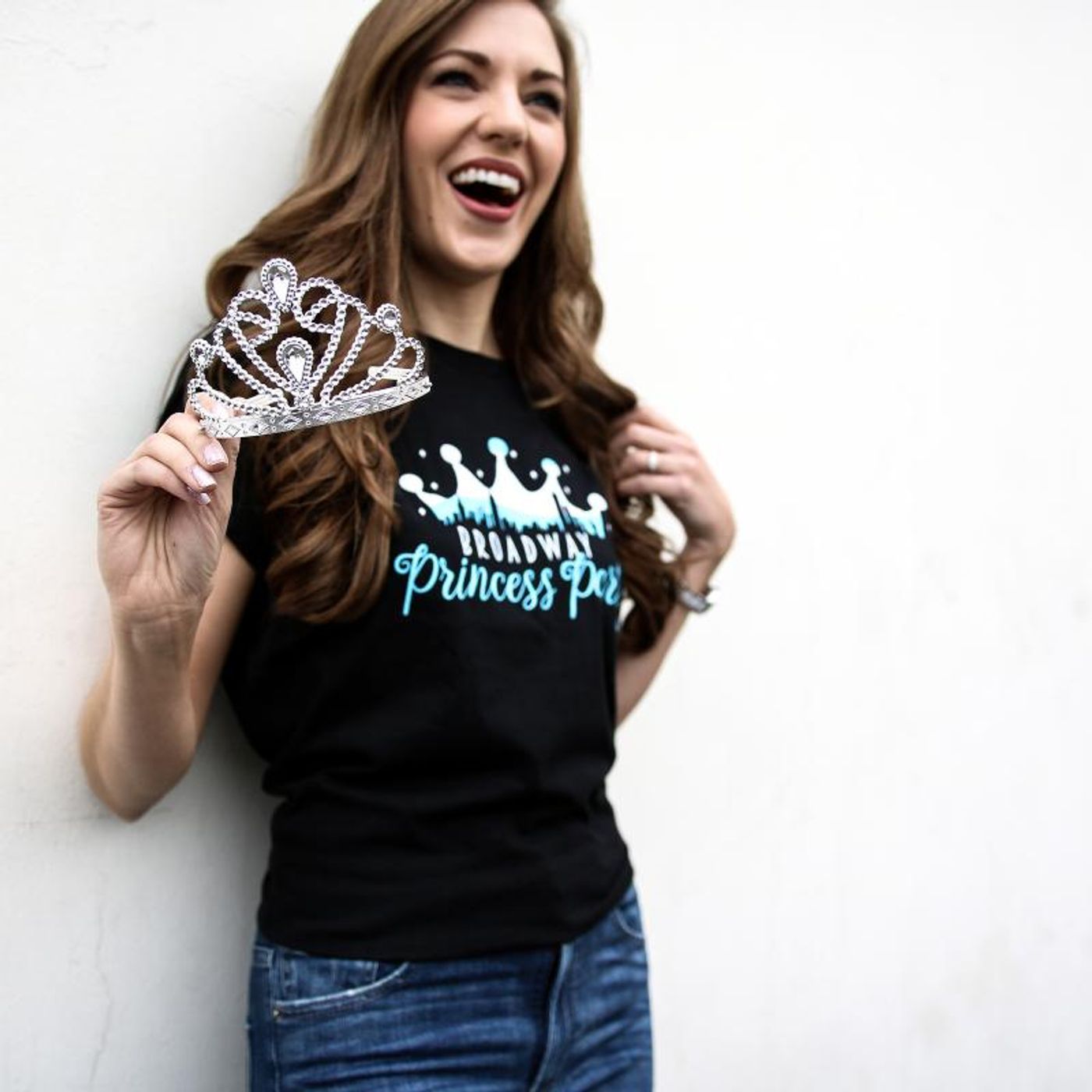
The duo built the Princess Party brand from the ground up, starting out on a list of ideas that Rauhala brainstormed on a plane and blossoming into one of the most popular concerts at Feinstein's/54 Below. It took off on social media via videos from the event that the producers posted on YouTube, quickly evolving from a one-time concert at a New York cabaret venue to selling out that venue several times and touring to locations across the country. It's developed into a full-fledged business, complete with a merchandise line debuting this summer at concerts and online soon. It's a testament to the wide array of skills necessary in a theatre career - there's more than just performing.
Osnes and Rauhala have moved from just performing others' work to creating content of their own - something that allows them to create a distinctive take on one of the most well-known archetypes in fiction. One of the biggest critiques leveled at the classic princess image is its reliance on qualities that code as "traditionally" feminine: elegance, grace, and kindness, among others: being "ladylike," in other words. Osnes, however, has a more modern take on it.
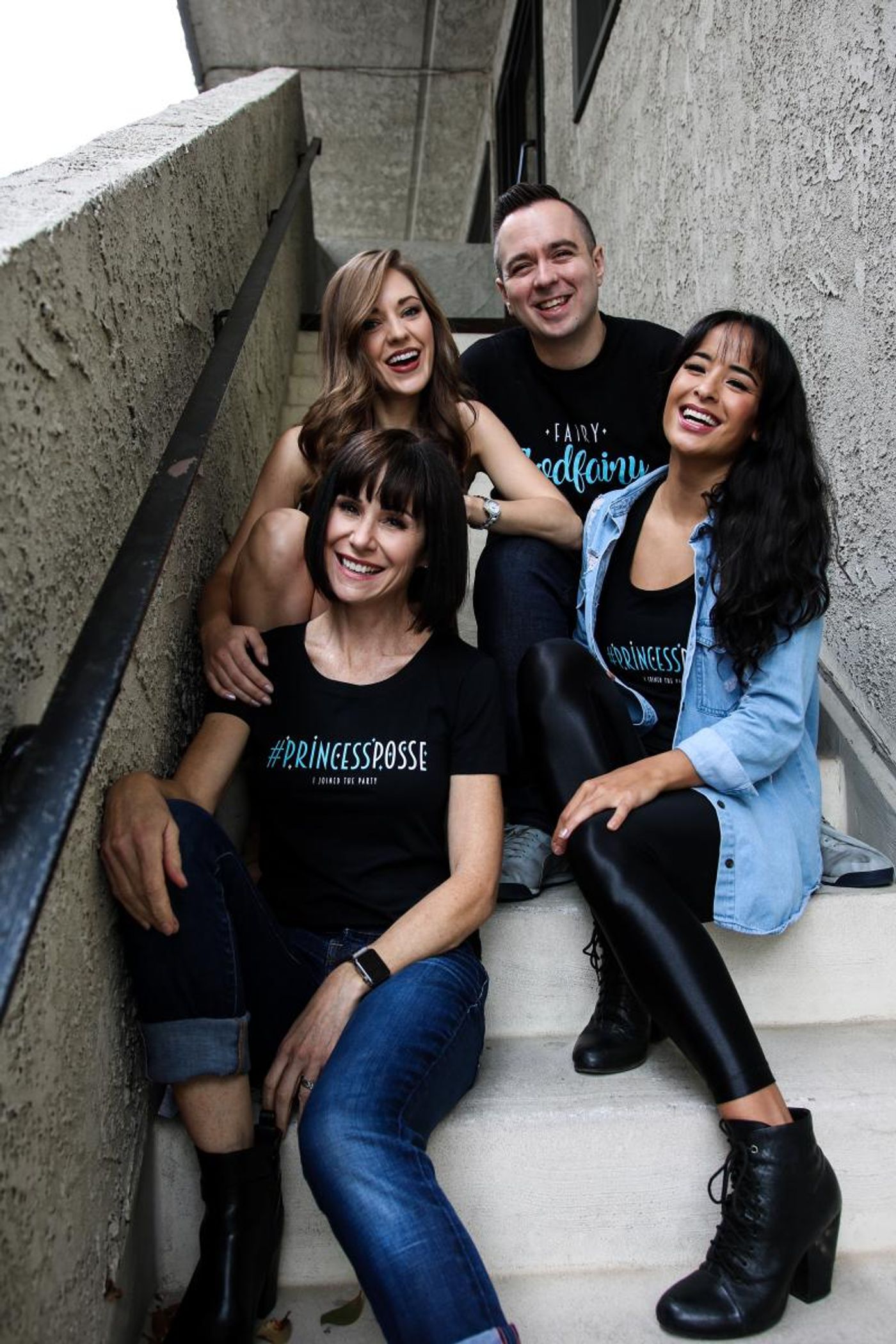
"[It's about] finding that balance between female empowerment while also owning those qualities of being graceful and gracious and kind, while also being strong... there are definitely some feminist princesses!"
Osnes puts into words what many women - this writer included - may feel: embracing "girliness" or gracefulness doesn't have to be incompatible with being a modern feminist. It's a preference, like any other - and the concerts' emphasis has been on the princesses as women of courage and determination, not just flowers and frills.
Everything about Osnes and Rauhala's creation, in fact, models a very modern approach to the princess niche: sweet and nostalgic, but also playful, courageous, and joyful. Their upcoming T-shirts, for instance, encourage fans to "Unleash Your Inner Princess" (and, yes, there's a "Fairy Godfairy" version as well for those who prefer Rauhala's tongue-in-cheek title). The very mark of "princess" has become something of a calling card that connects people of all ages and walks of life.
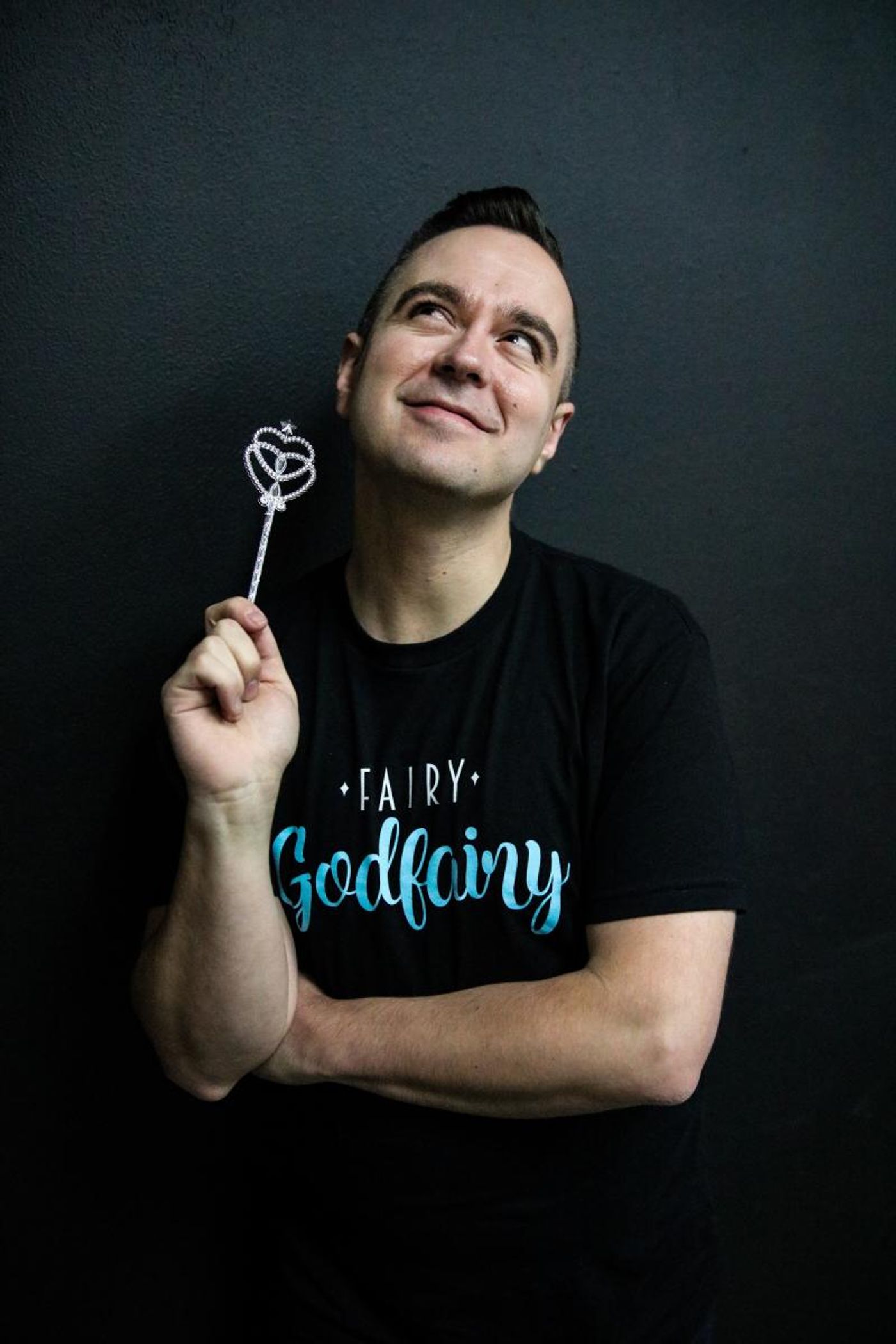
Osnes and Rauhala truly focus on that opportunity for community. The concert series assembles a cast of women who know each other in passing, but who often have been stuck competing with each other for roles rather than collaborating.
"They finally had a night to celebrate each other and cheer for each other, and sing these really uplifting, empowering girl songs," says Rauhala. Osnes agrees, recalling the reaction among the performers after the very first concert:
"[There was a] visceral feeling of unity, and the power of women, and how freaking talented all of our friends are!" The nostalgia and affection for these characters became something that united women to celebrate each other, and that's a key part of why many women today still embrace the "princess" story. And at the center of it all? The glorious music - the thing that sets these particular versions of old fairytales apart and allows them to endure past any cultural shifts.
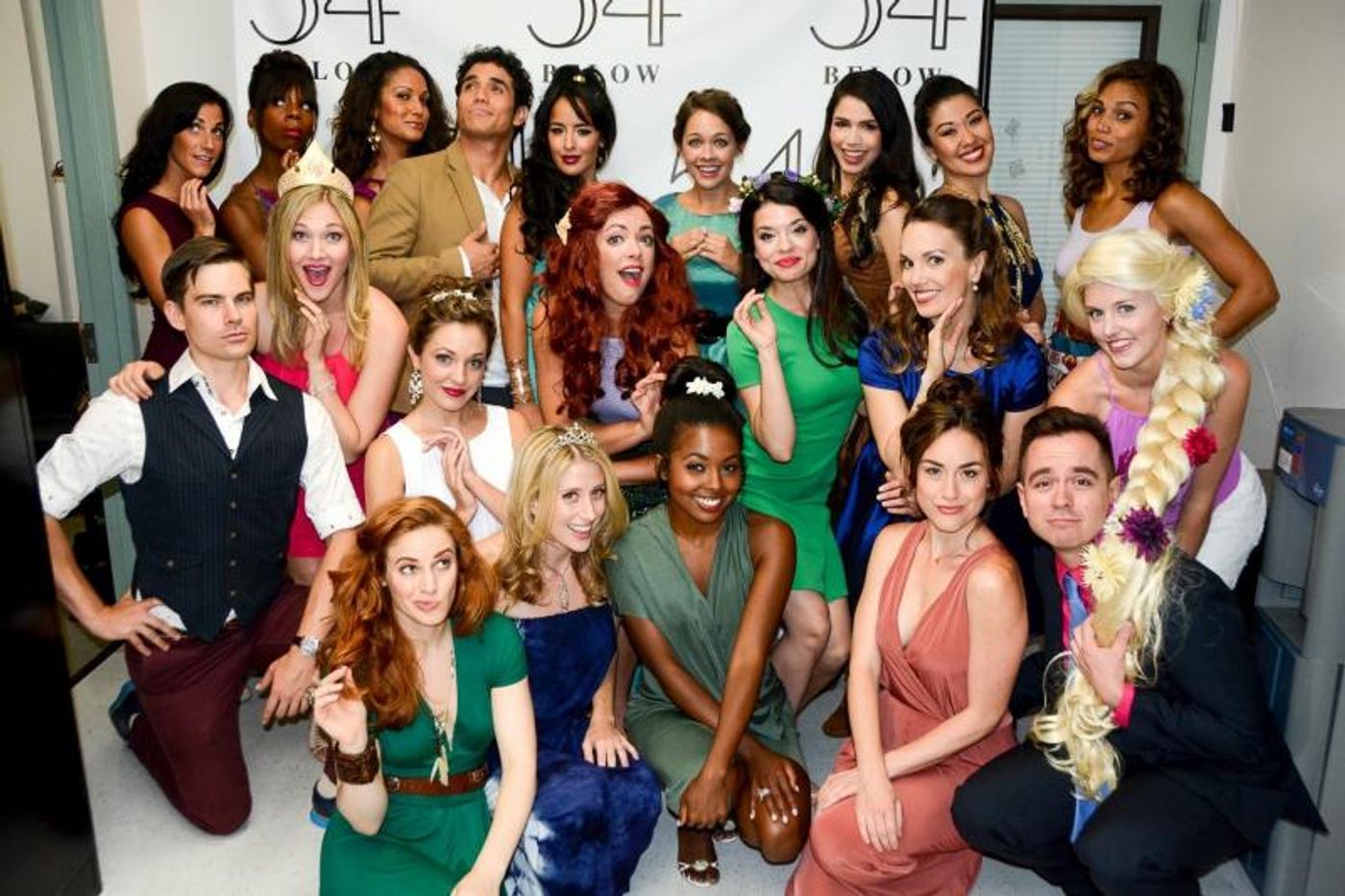
"They dream big, they dream boldly, and they're fearless about it, always. They're willing to risk a lot for their dreams," Rauhala points out as Osnes nods in agreement. "And most of [these songs], they're not love songs, they're about dreams and aspirations and the things you want with your life." Perhaps the passive-princess-love-story feels dated now, but hope and working for one's dreams never goes out of style, and that's what these songs express.
By isolating the music, we get a better look at what really drives this enduring affection. Put simply, the music of animated fairytales is stylized at the corner of pop and Broadway - that is, the intersection of generic sentiments onto which listeners can layer their own experiences and highly specific expressions of a character's unique circumstances. "Part of Your World" may literally be about Ariel's longing to walk on land, but thematically, the line "I want more" can be applied to any listener who yearns for something beyond the life they've always known.
Both Rauhala and Osnes have their own stories of connection to these fairytale characters, a genuine joy which adds to the authenticity of the series.
"I was very connected to Ariel when I was a kid... she's someone who understands that there's otherness about her, and she won't be told that it's not there, she knows it in her heart... and finds her way with love," Rauhala describes. It also turns out we have a princess to thank for his musical talents that have become such a fan-favorite:
"Beauty and the Beast was the first Broadway show I saw. And I became really enamored with the song 'Home.' I went back to my house, draped a blanket between two chairs, and would pretend to play the piano to 'Home.' And I begged for piano lessons... that resonated so deeply with me that I became a piano player!"
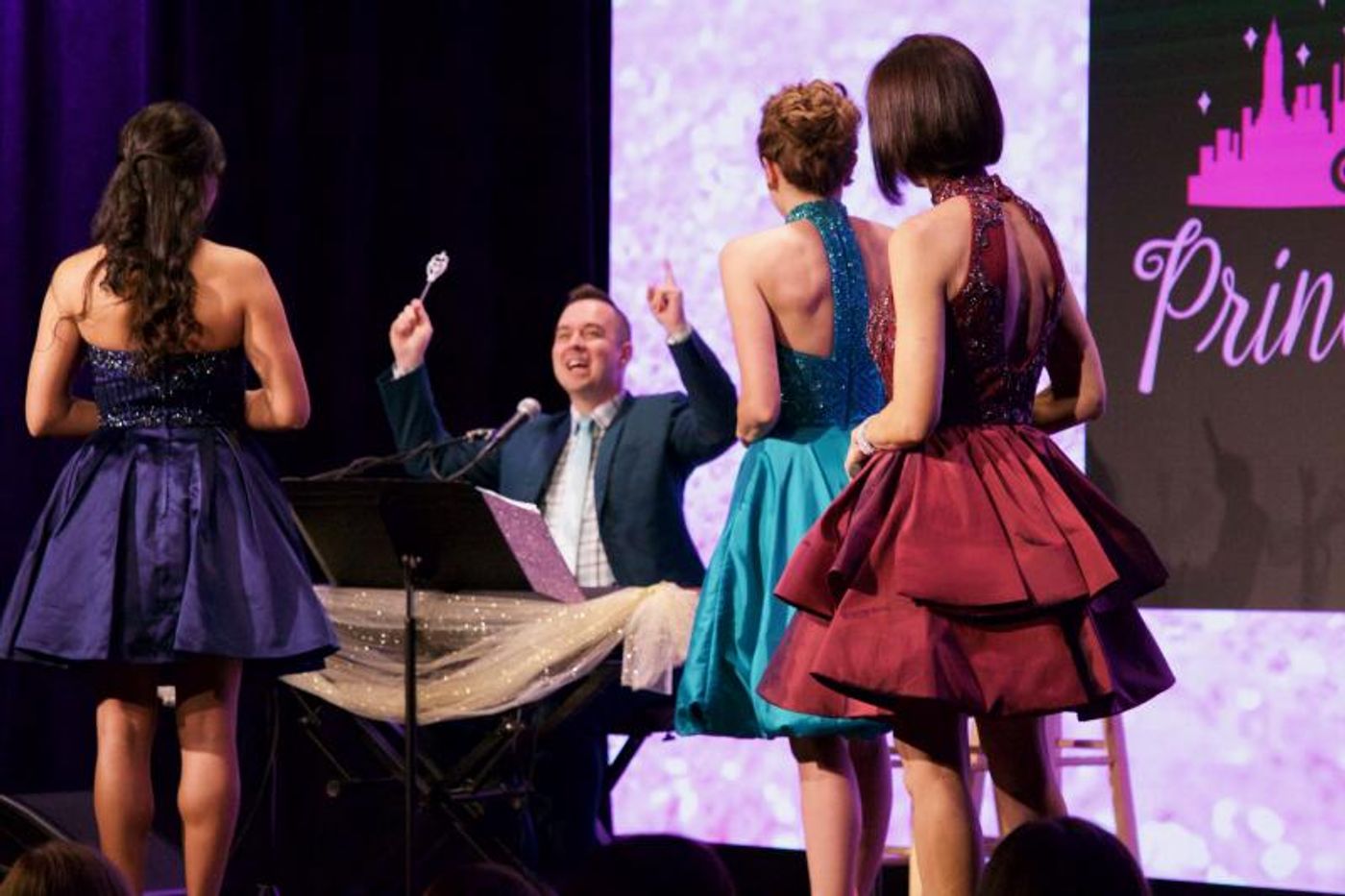
Osnes, meanwhile, has a special connection with Jasmine: not only was it a favorite in her household growing up ("I didn't have sisters - we grew up watching Aladdin excessively because there was a guy!" she laughs), but she met her husband, photographer Nathan Johnson, when they were understudying Aladdin and Jasmine together in a local theatre production. But she also is proudly the keeper of the Cinderella legacy: "kindness, charity, generosity, and forgiveness," after being associated with the character for nearly five years.
More than anything, Osnes, Rauhala, and their Broadway Princess Parties celebrate girl power and the stories of strong, interesting women - both onstage and in their audiences. Although they may not always take the characters seriously (a fan favorite segment revolves around "Woke Snow White), what's more important is that they take their audience seriously. Somewhere in those audiences might be a future Jasmine on Broadway who's inspired by Osnes or by fellow "Broadway princess" Courtney Reed, or a future composer who buckles down on her music when she hears Rauhala play "Home" with Susan Egan. The stories they bring us continue to endure because we can all use a bit of joy, hope, and a touch of fairy dust.
Videos


